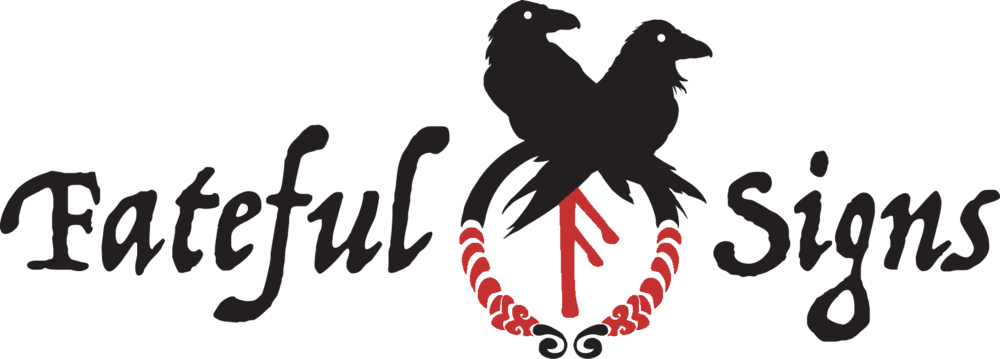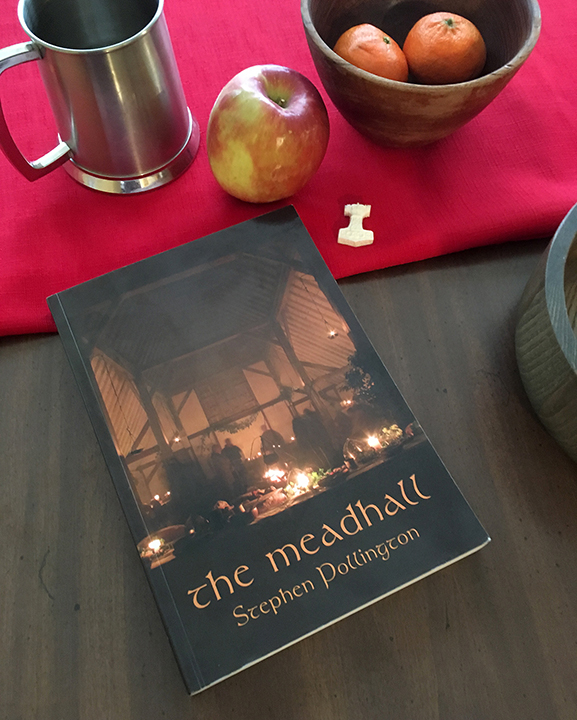I just finished reading “The Meadhall” by Stephen Pollington, and it is a wonderfully academic book. While not a Norse Mythology book in the traditional sense, the book is Norse Mythology adjacent, specifically focusing on Anglo Saxon England from the pagan period to the conversion and slightly beyond. His examination of the Anglo Saxon mead hall and the central role it played in the lives of our ancestors is a fascinating read!
The book is extremely thorough, going into how mead halls were constructed, what sort of activities people did there, and the various social roles important to the hall. All throughout the book, Pollington uses clear references of archeological finds and examination of Old English poetry. The book pays a special focus on the passages from “Beowulf” where the hero is in Hrothgar’s Viking mead hall.
I especially enjoyed the section on food. Understanding what ancient people ate and how they used everything is very interesting. When I say they used everything, I mean everything. I’ll let you read it to get the details, but the mead hall menu does not compare to the modern diet!
The section on social roles brought new light to the various roles we can see in “Beowulf.” The role of the lady of the house, and that of the voice of the King (not the King himself) are really well explained. It is often thought that Unferth is just a rude asshole giving Beowulf trouble, and he is typically portrayed as such in modern retellings of “Beowulf.” In truth Unferth holds the role of Thule (or Thyle) in Hrothgar’s Hall. The Latin terms Pollington compares the Old English “Thule” to, are “spokesman” or “satirist.” It was the Thule’s job to challenge the bold statements made in the hall. This way the King doesn’t have to be rude to his guests, while at the same time not putting up with anyone’s bullshit.
As I read the section on Thule it made me wonder if this was some of the inspiration behind Grima Wormtongue in “The Two Towers.” Tolkien was VERY familiar with “Beowulf” and even did his own translation. In “The Meadhall” Pollington opens the book by pointing out that the name of Theoden’s Hall is the OId English word for Mead Hall, so there is at least some connection.
There is also a detailed examination of the role of musician in the hall, as well as the types of games that the Anglo Saxons played. As a musician and a gamer I found both sections interesting. The role of “court bard” held a great deal of sway, but was apparently also subject to the fickle nature of the audience, and competition with other musicians.
I highly recommend this Norse Mythology book. It’s important to remember that the roots of the Anglo Saxons are from the Germanic people, and that when they migrated to England, they brought with them the customs of those people. There is very little information about the Pagan religion practiced by the Anglo Saxons, but what is known draws clear parallels to the Norse Pagans. Therefore, we must use a bit of both sources to paint a complete picture of these ancient people. The Norse Mythology book “The Meadhall” by Pollington does an excellent job of bridging the gap between Anglo Saxons vs. Vikings.
Sam Flegal is the creative mind behind Fateful Signs. He has been a freelance Illustrator since 2009. He likes to work in oil paint and with brush and ink, focusing on exaggerated expressions and detail. Sam lives in Nashville, TN, with his lovely wife and daughter. He makes art almost everyday and is a very lucky man.



